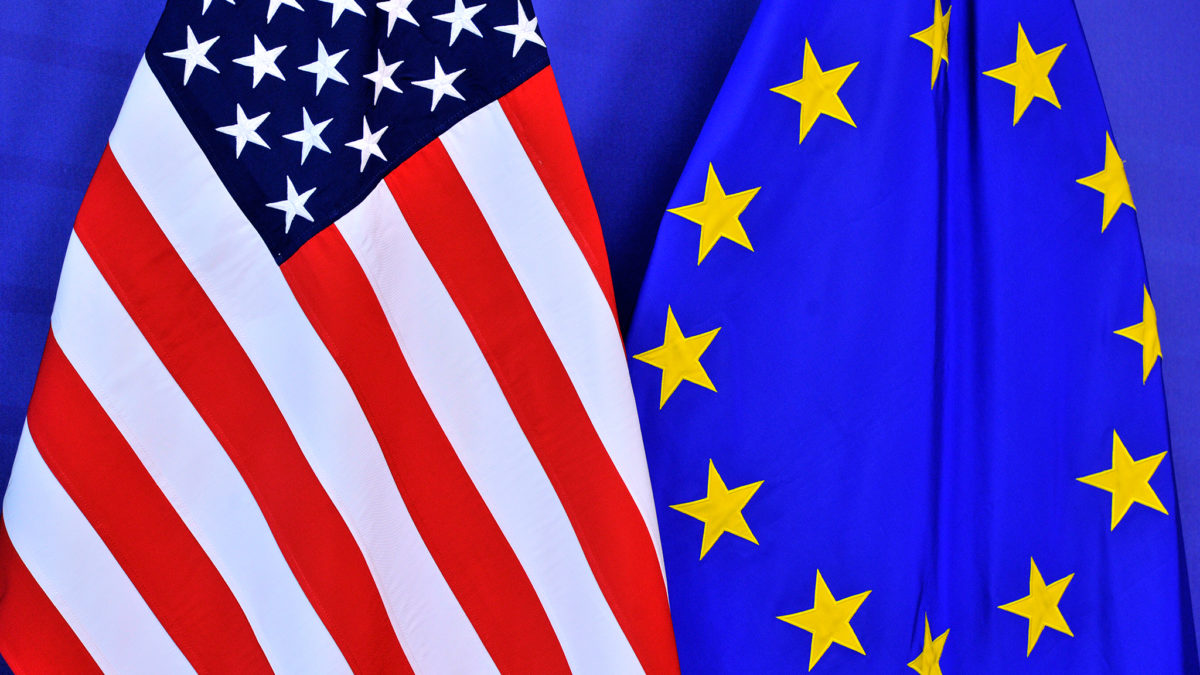One of the best investments one can make for the future is to invest in transatlantic exchange between students and other young people. The young generations play a key role in maintaining the transatlantic link in the long term and in keeping the link strong in today’s rapidly changing world. Sakke Teerikoski, for The New Federalist.
After World War Two, the transatlantic link was established as a safeguard for peaceful development on the war-torn continent of Europe. Ever since, the defence of Europe has relied on transatlantic relations in some way or another. The link has also become a symbol and a safeguard for the common values of freedom and democracy that we share on both sides of the Atlantic.
At the World Economic Forum conference in Davos earlier this year, former US Secretary of State John Kerry said in a panel discussion that the transatlantic link was always an important building block of the European peace project and that Europe should be careful about letting the populist fear-exploiting narrative go too far and split the transatlantic link from the inside.
In the same panel discussion, the NATO Secretary General Jens Stoltenberg highlighted the importance of the transatlantic link’s ability to adapt to a changing world. The same topics were also up on the table at the Munich Security Conference earlier this month.
There seems to be a clear will to once again highlight the importance of transatlantic relations and to maintain good relations in long-term. My tip: invest in the youth!
What has made transatlantic relations bloom for so long has been its firm basis in strong personal relations between politicians and diplomats on both sides of the Atlantic. This chain of tomorrow’s strong personal ties is already today being fostered by youth associations and political youth programmes which connect young people and young professionals in Europe and the United States through exchange initiatives.
This interexchange becomes increasingly important in an era like ours, where the political status quo is being challenged. The new populist narrative about liberal democracy is undermining the common values that unite Europeans and Americans. In addition to that, the tweets of President Trump and recent media attention of a looming trade war have created waves of unpredictability into the future of transatlantic ties.
Nevertheless, despite certain waves of unpredictability in the transatlantic link, the United States is now investing more into the defence of Europe than in the beginning of this decade. The American administration has invested in increased military presence, for example in Poland. NATO allies have embarked on a joint effort to increase their defence spending.
The question is whether the general public, and especially the young people, see this side of the story or the waves of unpredictability fed by the populist movements. Through a strong youth transatlantic dialogue, we can work to ensure that the truthful view of a well-developing transatlantic link is transmitted to the young public – on both sides of the Atlantic, in every EU country.
An instrument to preserve strong ties across the Atlantic is to create more platforms for young people interested in foreign policy from both sides of the ocean to meet. This interaction builds trust. Friendship between countries stands on the shoulders of friendship between individuals – be it diplomats, politicians, policy experts, academia or young professionals. When looking at the matter from an EU perspective, youth transatlantic exchange programs could be given an increased focus on EU affairs, so that the EU comes in as a natural building block into the transatlantic link. This is important not least due to the loud EU-critical voices in the political field of today, including the American president himself who during his election campaign expressed a positive view on the UK leaving the EU.
We need to keep highlighting the importance of the EU as a valuable partner for the United States, and not as a potential trade rival. For us Europeans, it’s also important to highlight that an increase in EU defence cooperation is in no way meant to replace the transatlantic link – these two don’t work against each other.
The role of youth as bridge-builders should not to underestimated, and even in maintaining a long-standing bridge such as the transatlantic link there’s a role to play for the youth. Many of today’s and tomorrow’s decision-makers are found in the young age groups – some in youth civil society, some in political youth parties, some on other platforms still.
The transatlantic link needs to be well-anchored through increased youth transatlantic exchange in order to stay strong and relevant in a changing world where much of the old world order is being challenged, including the liberal and democratic values that we share.
